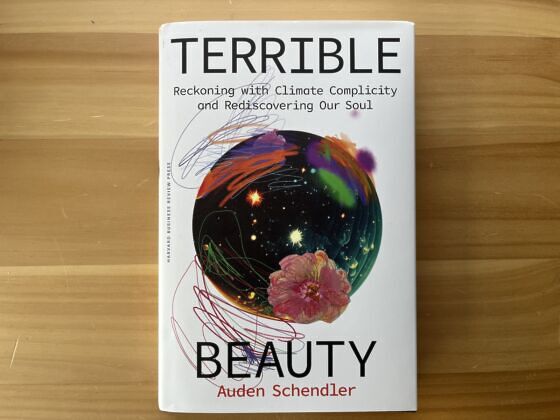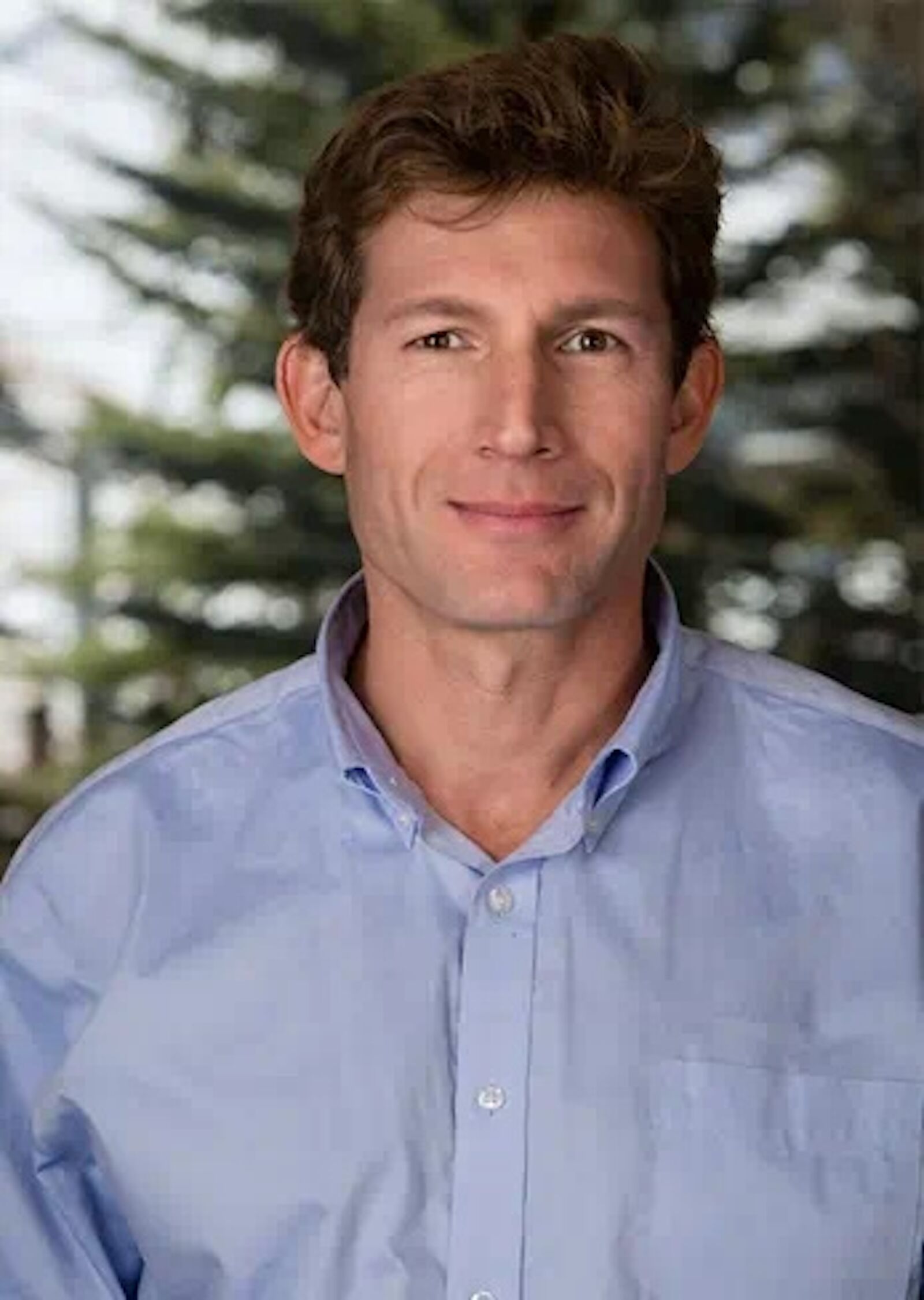“Terrible Beauty,” the part-memoir, part industry critique, and part-call-to-action from Aspen One Senior Vice President of Sustainability Auden Schendler, hit shelves on November 26, and for travelers – skiers and outdoor recreators, in particular – the book is a poignant and relevant take on the historical role of big business in addressing the climate crisis. Schendler’s rejection of the subjective and often immeasurable climate goals put forth by businesses – the outdoor industry among the most guilty – is refreshing, notably because it filets the fluff in favor of a finer focus on fixed targets.


Aspen's 'Sustainability Guy' Wrote a New Book, and It's a Must-Read for Outdoorspeople
The most defining aspect of “Terrible Beauty” is Schendler’s utter disdain for blanket sustainability promises and corporate greenwashing. Any who even lightly follow environmental news are likely equally jaded by carbon neutrality promises that won’t come to fruition until after an organization’s current leadership resigns or retires. The book is a tear down of those who’ve shifted the blame off themselves, including British Petroleum, which Schendler notes and history confirms invented the concept of the “personal carbon footprint” in order to pass the buck onto its consumers.
“Terrible Beauty” isn’t a feel-good look at how far we’ve come. Nor is it a pat on the back for businesses including Aspen One that have gone to great lengths to mitigate their carbon emissions. Rather, it’s a cut-through-the-crap account of what’s been done, what needs to be done, and what’s a waste of time when it comes to climate action. All this combines to make “Terrible Beauty” the most uplifting and important read of the past decade for outdoorspeople of all stripes.
Matador Network spoke with Schendler to provide context to this review.
Just so you know, Matador may collect a small commission from the links on this page if you decide to buy the book.
Who is Auden Schendler, and why the hell should we listen to him?

Photo courtesy Aspen One
Schendler has been the “sustainability guy” at Aspen Ski Co – now part of the Aspen One umbrella – for some 25 years and has been involved in corporate climate action almost since its inception. In the early chapters of “Terrible Beauty” he describes his time working at the Rocky Mountain Institute, a non-profit that, in part, advises businesses on how to reduce emissions to transform the global energy system, back in the 1980s and ‘90s, when “corporate sustainability” was a fresh term. With Aspen, he led efforts to turn an old coal mine into a methane-to-energy plant, developed large-scale renewable energy platforms to power skier operations and off-mountain amenities, and has written extensively about impactful efforts the outdoor industry can take (and opportunities missed) to reduce its environmental impact. His prior book, “Getting Green Done: Hard Truths from the Front Lines of the Sustainability Revolution,” published in 2009.
He’s also a parent and his son’s childhood fascination with garden gnomes acts as a conduit to the varying themes portrayed in “Terrible Beauty.” Gnomes, Schendler points out, maintain an ideal relationship with their surrounding environment – being at once master gardeners, stewards of the land, and upholders of animal rights. If only we could learn from them. As a parent myself, I find myself daily wondering about the future my daughter will inherit.
“The book is part memoir, part polemic, part parenting manual, part homage to beauty and existence,” Schendler says. “And it balances stories about life with examples of how to solve climate from my own experience. It’s a weird book—between each chapter I have “interludes” about life in a climate changed world. It’s basically my life’s work, intended for a very broad audience, not just business people, and it took three years to get done.”
Importantly, Schendler attempts to shift the conversation about climate change back towards big businesses. This is where the solutions lie to what will become our collective children’s problem. He argues that incrementalism – swapping light bulbs, installing bike racks for employees – are insufficient efforts by big business, and in many cases distract from the large systemic change necessary to evolve modern society into a sustainable operation. He advocates for policy work and the cooperation of business and government to identify and fund large-scale solutions as the proper way forward.
As such, Schendler is perhaps the one person qualified to provide a macro view on why current environmental efforts from businesses aren’t enough and, where necessary, call out greenwashing or wasted effort, which he does repeatedly throughout the book.
Why “Terrible Beauty is a must-read for environmentally-minded outdoorspeople

Photo: jdross75/Shutterstock
At the heart of “Terrible Beauty” is this question: Are citizens responsible for climate change simply for participating in the modern economy, when we never asked for convenience to be delivered in most harmful way possible?
“In short, I don’t believe that citizens, or businesses, are responsible for the fact that they live in a fossil fuel economy they did not ask for or create, and the science behind which was obfuscated or directly hidden from them,” Schendler told me, aligning with the book’s general thesis. “Yes, people asked for affordable heat, mobility, refrigeration, etc. But they did not say, ‘please provide that in a way that will destroy civilization.’”
Schendler acknowledges that we are where we are because of fossil fuels, but argues that the time has come to move beyond them.
“Fossil fuels served our needs admirably for a time,” Schendler says. “But once we understood the science (1950, Exxon by 1977), a functional society not owned by money in politics would have acted on the science. But instead, the science was hidden and the public conversation was co-opted. Further, I think that to take blame like this is to play directly into the hands of the fossil fuel industry, which wants you to feel guilty and mess around in your own little world but importantly, *not get in their way.* I think the obligation of citizens and businesses is to work to change the entire fossil fuel economy. And I lay out many ways to think about that, and how to do it, in my book. Businesses or citizens can’t be called hypocrites for, say, driving and SUV, if they are diligently and seriously working to change the whole system.”
At times Schendler does repeat himself. There are stories that are irrelevant. The incessant recounting of both Aspen and other corporations efforts, the critique of the “trailer park lifestyle” from his days as an insulator – add a few thousand words to the book that could have been trimmed. In his defense, those in the thick of environmental advocacy are by now so accustomed to saying the same thing over and over, and constantly feeling the need to justify themselves, that we often fail to realize it’s happening.
Notably absent from “Terrible Beauty” is the self-aggrandizing naval gazing so common in narrative environmental writing. Though he spends ample time discussing his career, family, and immediate contacts, Schendler refrains from presenting his path as righteous. Rather, he frequently calls out overinflated efforts and identifies points where he, his company, or the movement at large could and should have done things differently.
While acknowledging the role of technology in addressing climate change, Schendler cautions against relying solely on future technological solutions. Most of what we need already exists, he notes – what is lacking is scale and corporate accountability. While the onus is on big business, he does note the importance of personal responsibility and shows respect for those who take action. He believes that the transition to renewable energy is inevitable.
“There has never been any question about (whether the transition will happen),” Schendler says. “The issue is how we get it done in the timeframe required to stabilize earth’s climate.”
The theme most prominent from early to late in “Terrible Beauty” is that doing the right thing is increasingly aligned with doing the profitable thing. Solar power is now more affordable than other forms of energy. Plugging insulation gaps offers returns exceeding 10x. Sourcing food locally is both trendy and in some cases more reliable, given supply chain disruptions and disease outbreaks in the food chain. Composting waste and riding bikes are just the icing on the cake. Rarely does reading about the business side of the outdoor industry provide so much inspiration.